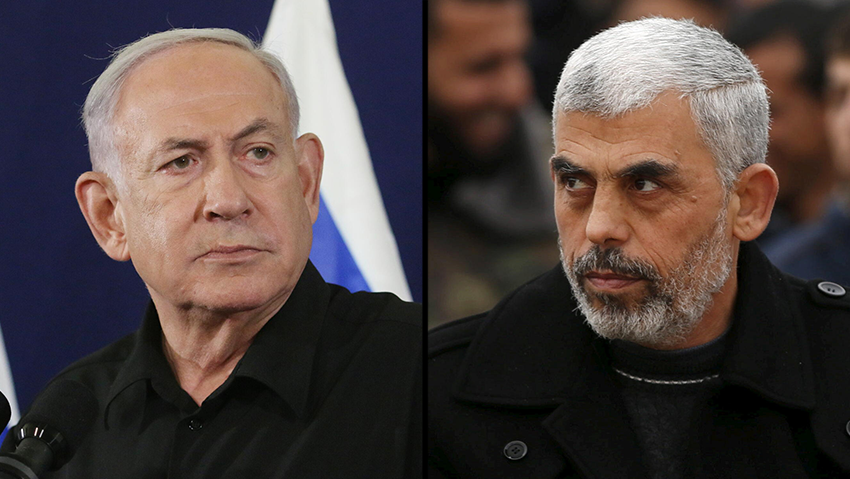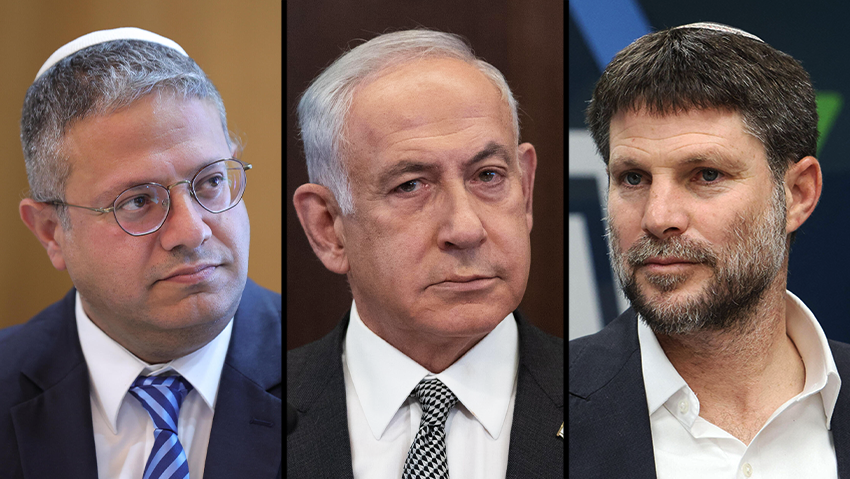Getting your Trinity Audio player ready...
Although the Egyptian-Qatari proposal for a hostage deal wasn’t accepted by Israel since it was first put on the table, Hamas' positive response to it has reshuffled the deck. The ball is back in the Israeli court, and it's now up to the Israeli government, led by Prime Minister Benjamin Netanyahu, to decide whether to respond to the proposal positively and agree to end the war at the end of the deal's first phase (or before the start of the second phase, depending on how you see it), or to respond negatively and be seen around the world as one who rejected the option of ending the war.
Hamas, it seems, has latched onto the new proposal. The announcement didn’t come from a "source" or "official" within Hamas, but through an official statement reporting that the political head of the terror group, Ismail Haniyeh, contacted Qatari Prime Minister Sheikh Mohammed bin Abdul Rahman Al Thani and Egyptian Intelligence Minister Kamel Abbas, informing them that the organization accepts their proposal for a cease-fire.
The significant change for Hamas is a commitment to practically announce the end of the war. While Hamas demanded prior approval, it is willing to settle for such an announcement at the end of the deal’s first phase, after the release of the first group of hostages taking 42 days, and before the release of the captured IDF soldiers and young men.
This is very dramatic, especially since it puts Israel at the forefront of a long-term cease-fire and places Netanyahu in a politically complex situation. If he rejects the Egyptian deal, it may lead to Ministers Benny Gantz and Gadi Eisekot leaving the emergency government and pushing for widespread public pressure, likely involving new groups among the Israeli public.
On the other hand, if he accepts the Egyptian proposal, he will have to stop the operation in Rafah, and some of his ministers – led by Bezalel Smotrich and Itamar Ben-Gvir, of course – have already threatened that accepting the Egyptian deal would imply that the current Israeli government has no right to exist.
In this sense, Hamas' leader in Gaza, Yahya Sinwar, the man who knew how to deal with Netanyahu, is the one who has captured him in the most complicated political situation he has ever known. Meanwhile, the War Cabinet made the decision is to send a small team to Cairo without any senior leaders, while simultaneously continuing the operation in Rafah.
It can be assumed that the stubborn stance taken by Sinwar and his partners in recent days has brought about significant pressure from Egypt and Qatar against the organization's leadership, and simultaneously an attempt to find places in which the terror group could compromise for the sake of the deal. None of the sides wanted to continue the Rafah operation, and it’s possible this step is intended to stop this operation first and foremost.
Sinwar, along with Haniyeh and others, made his calculations and realized the new proposal on the table didn’t meet the terror group's initial conditions - namely, a complete pause in the fighting during the first phase, but on the other hand paved the way for such a pause in just over a month and a half.
If both sides adhere to the terms and the Israeli hostages are released at the agreed pace, then a permanent cease-fire is appropriate for us. In other, simpler terms: Hamas’ rule in Gaza will survive. That’s what the organization has been asking for since day one, and therefore its temptation for the deal may have been too great to pass up.
If Israel responds positively, Hamas can end the fighting while portraying itself as the winner, not only in front of the Arab world but even in front of Israel. It has changed the global perception of Palestinians and has turned the State of Israel into a pariah in the eyes of many. Therefore, it is possible that stopping at the war’s climax will serve its goals well from its perspective. The ball is now in Israel's court, and Netanyahu’s final answer remains to be seen.






